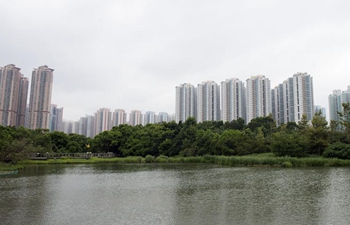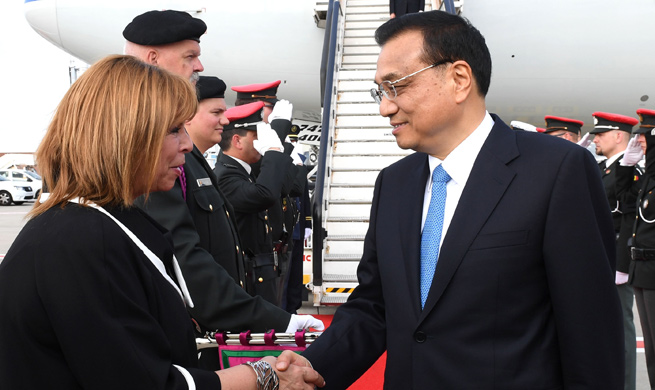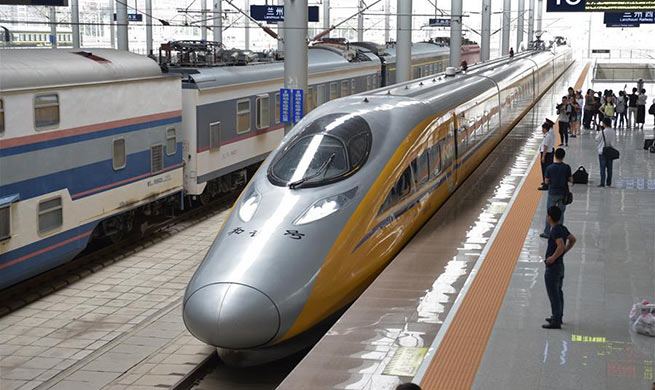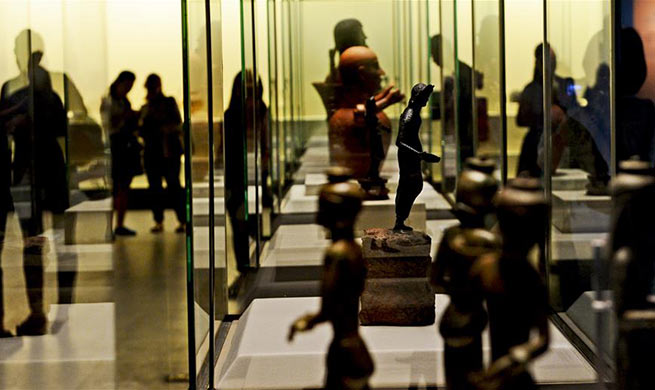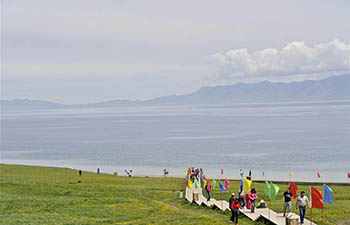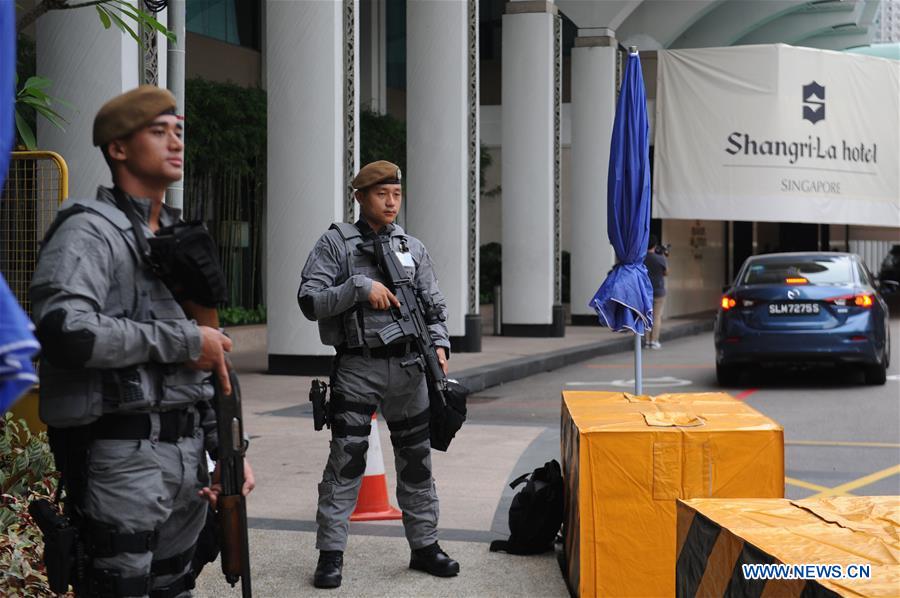
Singapore police are on duty outside the Shangri-La Hotel in Singapore on Jun 2, 2017. Issues related to Asia-Pacific security and cooperation are expected to go through intense discussion at the Shangri-La Dialogue held here from June 2 to 4. (Xinhua/Then Chih Wey)
by Liu Tian, Yi Ling and Xia Lixin
SINGAPORE, June 1 (Xinhua) -- Issues related to Asia-Pacific security and cooperation are expected to go through intense discussion at the upcoming Shangri-La Dialogue to be held here.
The event, scheduled from June 2 to 4, will attract experts on international relations, government officials and military officers to trade their ideas and exchange opinions.
The Korean Peninsula nuclear issue is believed to be top on the agenda, as pressure on the Democratic People's Republic of Korea (DPRK) has been increasing, as Pyongyang has recently stepped up its nuclear and missile program.
The deployment of the U.S. Terminal High Altitude Area Defense (THAAD) system in South Korea, which Washington and Seoul claimed to be aimed at defending against threat from the DPRK, has gravely undermined the regional strategic balance and the security interests of regional countries including China, and runs counter to peace and stability on the Korean Peninsula.
According to Japanese Asian affairs commentator Kaoru Imori, restarting multilateral dialogue could defuse tensions, and all stakeholders including the DPRK have not ruled it out.
Laurent Sinclair, a Pacific affairs research analyst based in Japan, also said the only way for progress to be made regarding the issues facing the region is increased diplomacy. "I think this is what the key stakeholders really want. Multilateral talks are essential to cool tempers in the region."
Wang Jiangyu, deputy director of the Center for Asian Legal Studies at the National University of Singapore, said another uncertainty comes from the United States under its new administration of President Donald Trump, as the new administration has not yet clearly unveiled its policies toward the Asia-Pacific region.
"Peaceful and cooperative ties between the two countries (China and the United States) will definitely contribute to the stability of the entire region and some regional issues or small conflicts will be controllable since the China-U.S. relationship is the ballast of Asia-Pacific security," Wang told Xinhua in a recent interview.
Moreover, participants are also expected to share their views on the fight against terrorism, which has spread from the Middle East and Afghanistan to some countries in Southeast Asia, posing a risk to the entire region.
Meanwhile, experts say the China-proposed Belt and Road Initiative is offering a golden opportunity for the region to achieve common development, which will also contribute to regional peace and security.
"I believe the Belt and Road Initiative will be a proper and effective forum in the near future which will help resolve many conflicts and disputes in the region," said Muhammad Ashraf, president of Pakistan's Punjab Peace and Security Committee, adding that "in the coming days, the initiative will bring many countries with differences to one table and will interlink them through financial benefits and future prosperity under one goal of shared destiny."
"In the long term, the Belt and Road Initiative could serve to better connect countries and continents and through this enhanced connectivity we could see nations prosper and understand each other better through people-to-people exchanges," said the expert.
"It's a long-term prospect, but the benefits could be plentiful. Increased connectivity should, in theory at least, leads to increased awareness and from this comes understanding and hopefully peaceful and prosperous relations in the region," Japanese political analyst Teruhisa Muramatsu told Xinhua.
Inaugurated in 2002 and organized by London-based International Institute for Strategic Studies (IISS), the Shangri-La Dialogue has become a prestigious platform to discuss security issues among defence officials, senior security officials, military chiefs, diplomats and executives.









